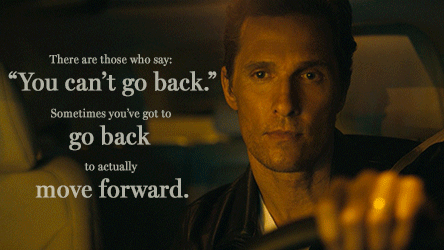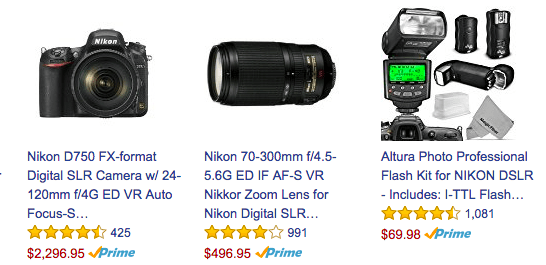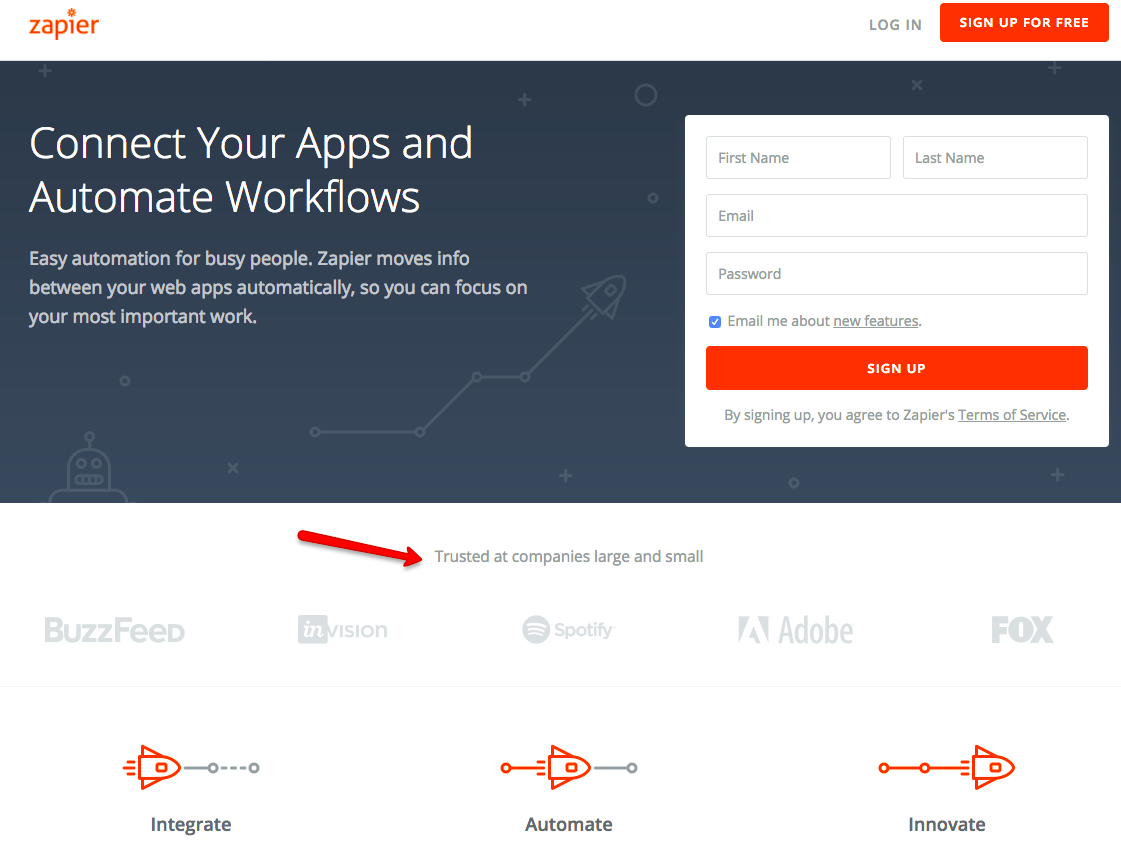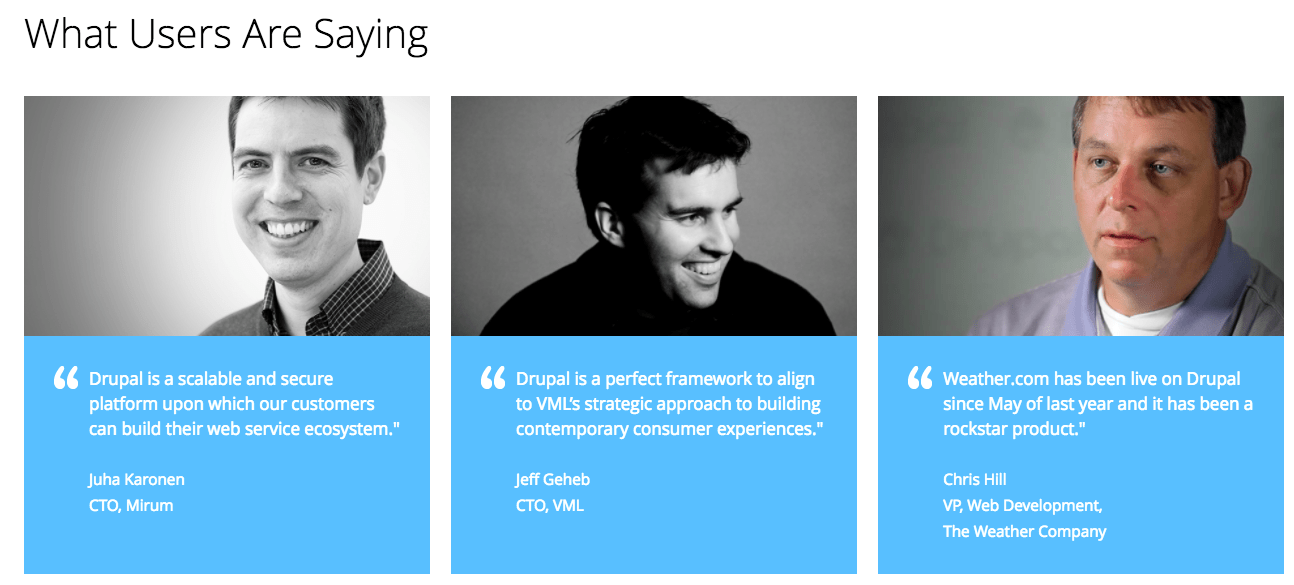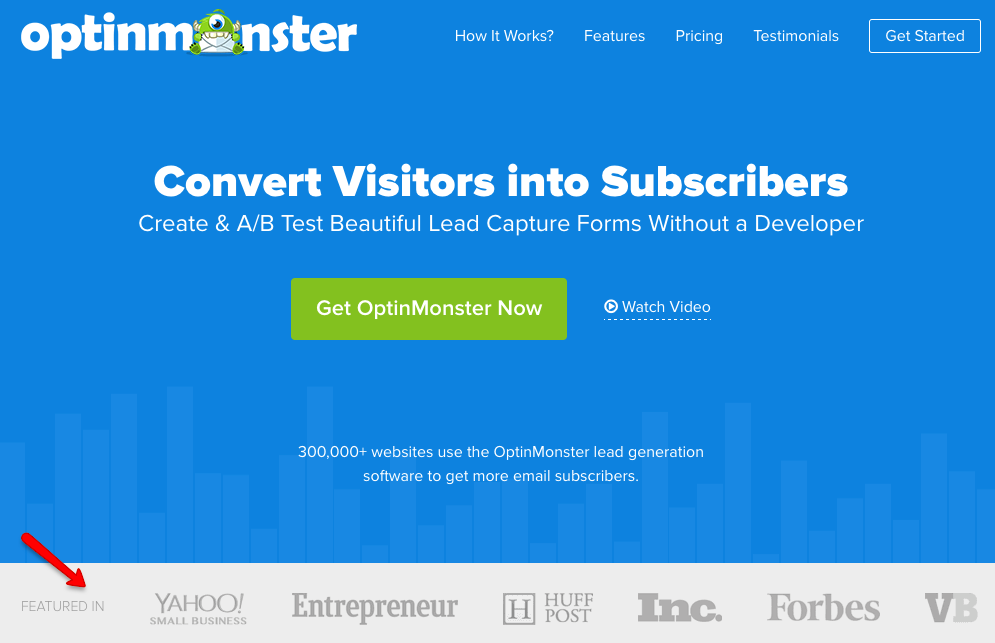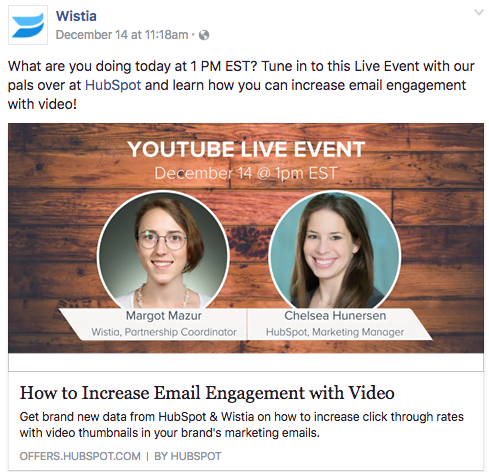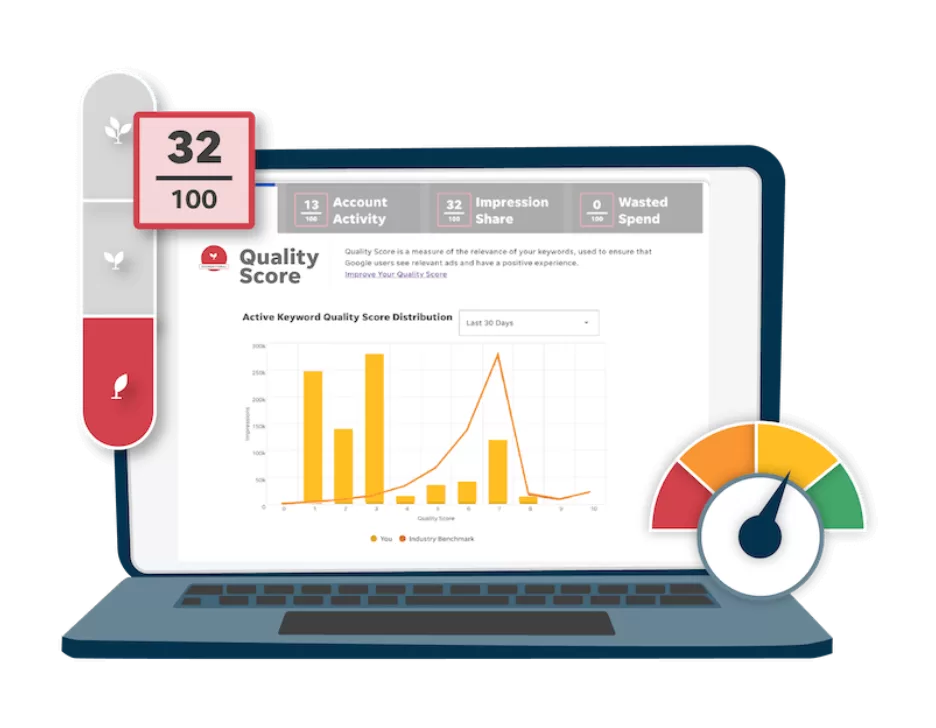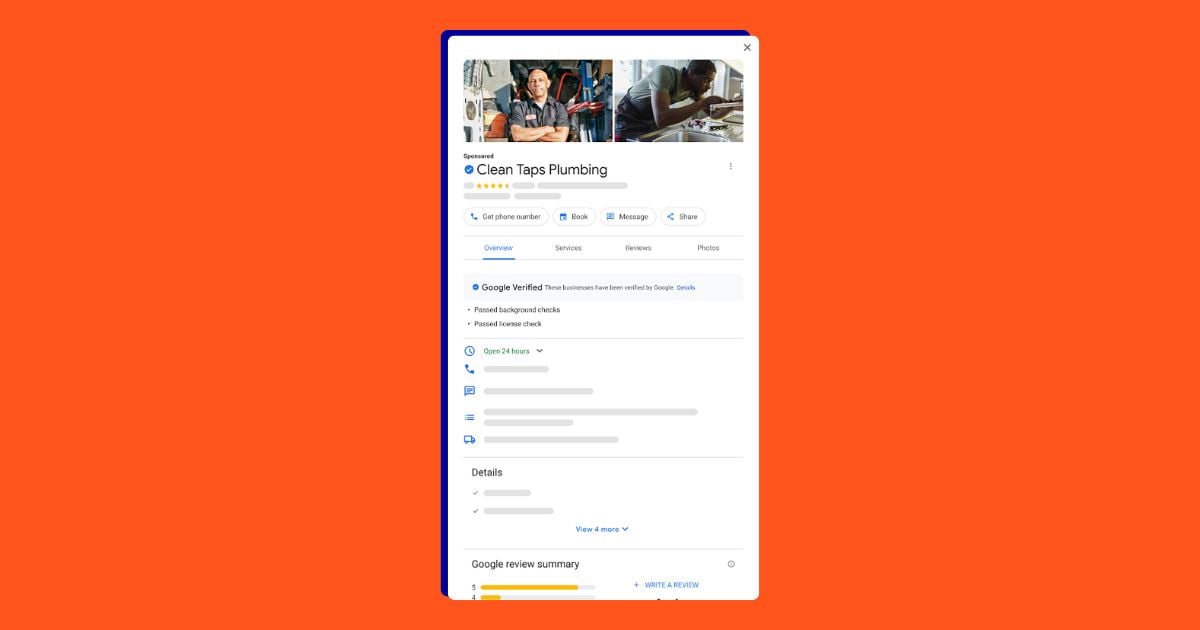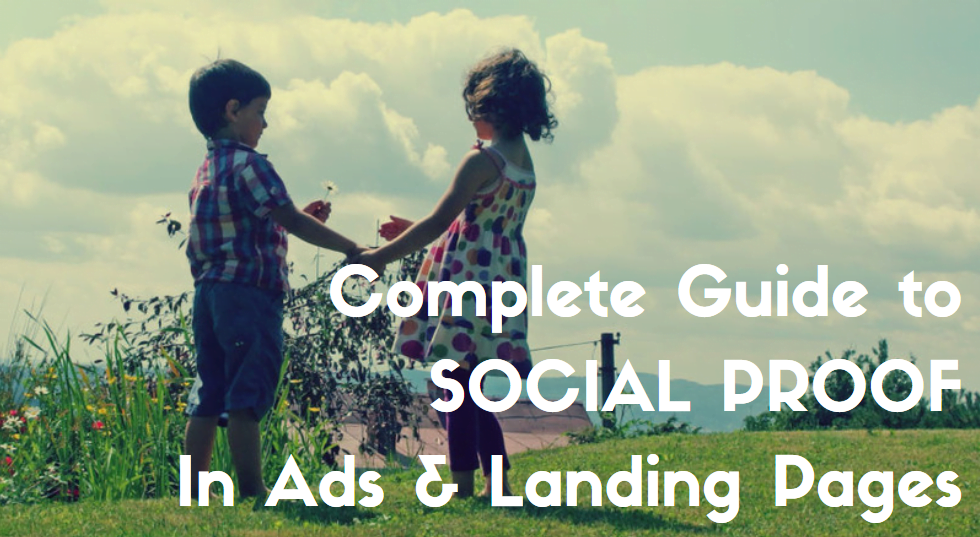
Do you remember the first time you saw someone wearing UGG boots? You probably gasped with disgust, thinking “oh man, those things are ugg-ly!” Fast forward a couple months later when you purchased a pair. Why did you do this? The answer is social proof. As you stormed through the hallways you noticed that all of your closest friends and older idols started sporting UGG boots. Every fashion website you visited raved about them, and your favorite celebrities were photographed wearing them in every gossip magazine. How could you not jump on the bandwagon?
This story demonstrates the power that social proof can have to influence a buyer to purchase. Whether it be a B2B software solution or a consumer product like a pair of ugly winter boots, social proof can shift our perceptions and push us down the funnel to convert.
What Is Social Proof?
According to Unbounce, social proof is “the positive influence that’s generated when people find out that ‘everybody’s doing it.’ Building social proof into your offer in the form of testimonials, reviews, or trust seals is a great way to generate interest, increase credibility and drive more conversions.”
Social proof is a convincing endorsement of your business, products, or offerings. Using social proof can make a significant impact on the growth of your business and be useful in tactics like social selling.
The Flavors of Social Proof
Social proof can come in multiple flavors. Here are a few of the most common:
Industry Experts
In every industry there are individuals who have become well-known and sought after industry experts. For instance if you’re an SEO consultant, and you get an endorsement on your website from Rand Fishkin (who is often regarded as the father of SEO) then your website visitors will feel encouraged to move forward with your services.
Celebrities
Social proof from celebrities can be extremely hard to come by, but if you’re able to get a public endorsement from such a well-known name it can really transform your business. Typically companies that are much further along, and well-known themselves (think big brand names like Nike, Dove, BMW, etc.) have a much easier time gaining these opportunities since it can be quite a big investment to hire the celebrity to provide social proof. But who could forget the Lincoln ads with Matthew McConaughey?
Smaller companies will likely have better luck seeking out local “celebrities” or industry experts rather than convincing Anthony Bourdain or Reese Witherspoon to give social proof to their product or service.
Recognized Customer Brands
My favorite form of social proof lies in having your customers do the bragging for you, because who would know better than them? The key here is choosing big customer brand names to provide the social proof. For example, let’s say Google is using your employee training software; if you’re able to get a review, case study, or even just use their logo on your website, this would be a huge win in providing social proof from a well-known (as in everyone knows it) and respected brand.
Peers
Peer reviews are most effective in aggregated forms – for instance a 5-star average out of 21,043 ratings! Why is this method effective? Because people read and trust reviews from their peers. According to BrightLocal, 88% of consumers say that they trust online reviews as much as personal reviews. If you’re able to aggregate several reviews in a easy to display format, this can make a huge impact on gaining consumer trust.
Two of the most critical places for digital marketers to use social proof are in their online advertisements to get people to their websites, and on their landing pages to ensure folks are compelled enough to purchase. Here are some best practices for doing just that.
4 Ways to Use Social Proof on Your Landing Pages
Let’s take a look at some great examples of businesses using social proof in the real world.
1. Big Brand Customer Logos
Including some big name customer logos on your landing page can really tip people over the edge. If they see several brands they respect and admire then their trust will strengthen with higher likelihood of converting.
Check out the subtle example for Zapier below.
2. Short Testimonial Quotes
Including powerful customer quotes on your landing pages is a great way of utilizing social proof to draw on the emotional side of a viewer’s brain. Compelling anecdotes from customers can often lead to purchase! I love the example from Drupal below where they also use a photograph of the customer to show an even more human side.
3. Video Testimonials
This is probably the most compelling way to turn a lead into a customer. Video allows you to really pull at the heartstrings of your visitor, and bring social proof to life. Check out this great example from Steve & Kate’s Camp.
4. Media Mentions
Did Forbes or Business Insider give you a positive endorsement? This is the perfect opportunity to provide social proof on your landing pages. Big media companies are often trusted by consumers so showing that they endorsed you provides further legitimacy behind your brand.
Check out the example from optinmonster below.
4 Tips to Use Social Proof in Your Paid Ads
1. Seller Rating Extensions
Check out the ad below. Including star ratings directly in your ad immediately gives the shopper social proof that they can trust your business before even clicking on your ad. If you’re using Google Shopping then you can take the steps to make these appear. Follow the instructions outlined here.
2. Review Extensions
Review extensions are another great way to add social proof to your PPC ads. They’re like adding a mini customer testimonial directly to your ad. These extensions are also easier to control then seller ratings, and aren’t limited to the Google Shopping Network.
3. Run Customer Testimonial Video Ads on Social Media
Do you have some really compelling customer testimonial videos? Don’t limit the exposure of these to just your testimonial or case study pages. Rather run some video ad campaigns on Twitter and Facebook to gain even more exposure to these intriguing anecdotes to provide social proof to a larger audience.
4. Partner with a Well-Known/Respected Brand to Run a Social Contest
Have you ever heard the expression “famous by association”? That could be you! Co-marketing with well-known brands that are willing to partner with your business is not a new marketing tactic, but it is one that is underutilized on social media. Propose to one of your rockstar partners the idea of running a co-branded contest on social media, and create some compelling advertisements showcasing both of your brands. Having new leads see your brand tied to one they already respect and follow provides another big sprinkle of social proof.
We do this a lot at Wistia! Check out the example below of an event we hosted with HubSpot. While HubSpot is not the most well-known brand in the universe, it is well-known for our target customer base so it makes us look famous by association.
Don’t underestimate the value social proof has on growing your business. Implementing some of these tactics could lead to surprising results.


